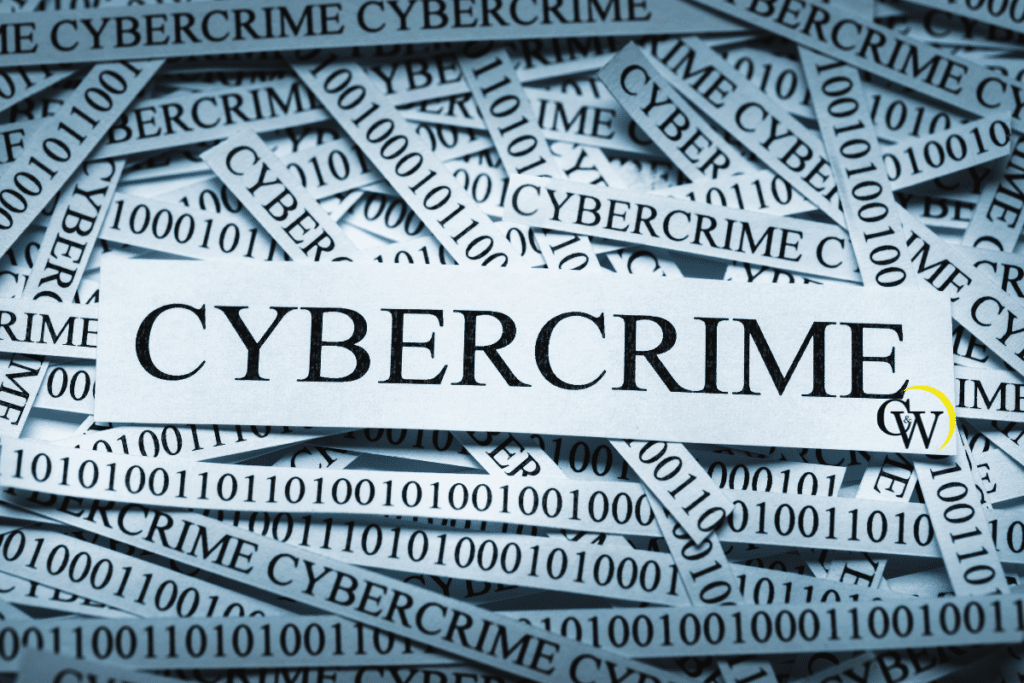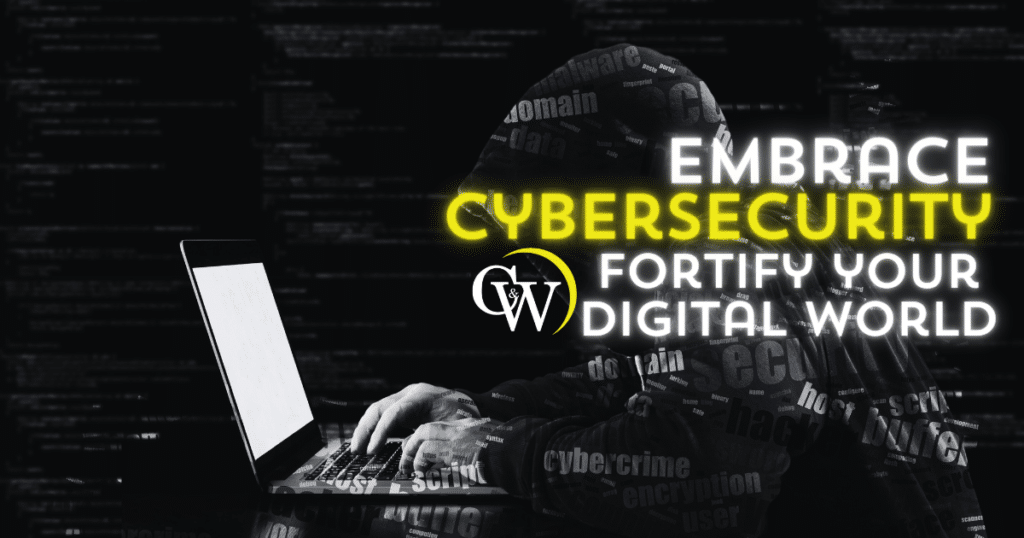Don’t be the Next Victim. Protect Your Business from the World of Cybercrime

Don’t be the Next Victim. Protect Your Business from the World of Cybercrime
Enterprise-Class IT Protection for the Small–to Mid–Size Company
Nearly every company in operation today runs the bulk, or entirety, of its workflow on computerized systems. Those IT systems allow companies like yours to increase efficiency and compete head-to-head with similar businesses throughout the world.
The downside to your IT environment is that it must be secured, or everything—your data, workflow, and confidential client information is at risk. Click here for more information.
Must Know: Most Common Online Crime
The most common online crime that small-to-mid-size businesses fall victim to is ransomware. This type of malicious software (or malware) holds a company’s data “hostage” by encrypting it and demanding a ransom payment in return for the decryption key.
If your company falls prey to this type of attack, you could potentially lose all of your important data, resulting in significant financial loss and potential legal action from clients whose information has been compromised.
What are the 10 types of Cybercrime?
- Phishing scams
- Identity theft
- Malware attacks (including ransomware)
- Denial of Service (DoS) attacks
- Cyberbullying and harassment
- Hacking and unauthorized access to systems
- Intellectual property theft
- Financial fraud and online scams
- Data breaches and leaks
- Online child exploitation
All of these types of cybercrime can have devastating effects on a business, including financial loss, damage to reputation, and legal consequences. Financial losses can stem from theft of sensitive data or direct monetary theft.
Damage to reputation can lead to loss of customer trust and a decline in business opportunities. Legal consequences may involve penalties, regulatory fines, and costly litigation, further compounding the impact on the business.
Protect Your Business with Enterprise-Class IT Security
To protect your business from the world of cybercrime, it is crucial to invest in enterprise-class IT security solutions. These solutions are specifically designed to meet the needs of small-to-medium-sized businesses and provide comprehensive protection against various types of cyber threats.
Some key features of enterprise-class IT security include:
- Advanced firewalls and intrusion detection systems
- Secure remote access for employees working remotely
- Multi-factor authentication for added login security
- Regular software updates and patch management to address vulnerabilities
- Data backup and disaster recovery plans in case of an attack or breach
By implementing these security measures, your business can greatly reduce the risk of falling prey to cybercrime. It is also important to regularly train employees on cybersecurity best practices and maintain strict protocols for handling sensitive data.
Smaller Businesses are NOT Immune to Cyberattack
Because enterprise-level organizations have fortified their IT environments, cybercriminals have pivoted to target the low-hanging fruit of less protected, small- to mid-size companies in recent years. In fact, 43% of cyberattacks are directed toward the small business.
That’s where our company stepped into the picture. We provide comprehensive, robust IT security measures that help you protect your business while simultaneously leveraging the benefits of digital workflow and advanced productivity tools.
Guard Against:
- Unauthorized access to your data
- Phishing
- Ransomware
- Internal corporate espionage
- Malware (viruses)
- Malicious hacking
- Damage to your reputation
Enterprise-Class Protection for your Business—Without the Enterprise-Class Price Tag
By partnering with IT management, your business can utilize the protective power of top-of-the-line cybersecurity tools and personnel. Because we are able to spread the high cost of enterprise-class cybersecurity tools and IT specialists across our client base, we offer best-in-breed security solutions to small and mid-size companies like yours within a simple monthly payment structure.
Strengthening your Weakest Link – Employee Cybersecurity Awareness Training
Untrained staff can inadvertently allow cybercriminals access to your IT systems, your company’s data, and your customers’ private information. To help mitigate this risk, our team provides an array of training options for your employees, helping them stay safe while using internet-connected or cloud-based workflow. These training programs focus on raising awareness about common cyber threats and teaching best practices to prevent data breaches and other cybersecurity incidents.
Take Action Now: Secure Your Business with C&W Technologies
Don’t wait until it’s too late to secure your business from cybercrime. Contact C&W Technologies today to learn more about our enterprise-class IT security solutions and cybersecurity training programs. Our company of experts can help assess your needs and create a customized plan to protect your business, your data, and your clients’ information. Don’t become another statistic in the world of cybercrime – trust C&W Technologies to keep your business safe and secure.
Remember: Cybersecurity is not a one-time task. It requires ongoing maintenance, updates, and employee education to stay ahead of ever-evolving threats. Stay vigilant and prioritize the security of your business to ensure its long-term success. That’s all for now, but always remember to stay informed and prepared when it comes to cybersecurity. Your business depends on it!
Staying Informed and Prepared
Follow reputable sources such as government agencies or industry organizations to stay updated on the latest cyber threats and best practices. Stay proactive by regularly assessing your IT security measures and making necessary updates. Educate yourself and your employees on how to recognize and respond to potential cyber attacks.
Remember that preventing a cyber attack is much more cost-effective than dealing with the aftermath of one. By staying informed, prepared, and proactive, you can protect your business from potential cyber threats and ensure its continued success. So make sure to invest in enterprise-class IT security solutions and stay vigilant against cybercrime – because the safety of your business depends on it. Contact us today!
Frequently Asked Questions (FAQs)
What is cyber crime?
Cyber crime refers to illegal activities conducted via computers or the internet. It encompasses a wide range of offenses including data breaches, internet fraud, and computer crimes.
How do cyber criminals steal data?
Cyber criminals use various methods to steal data, including phishing attacks, malware, and exploiting vulnerabilities in computer systems and networks. They often target unprotected corporate data and personal information to commit fraud or sell on the dark web.
What should I do if I experience a data breach?
If you experience a data breach, immediately report it to relevant law enforcement agencies and the Internet Crime Complaint Center (IC3). Take steps to secure your systems and notify affected parties.
How can I protect my business from cyber crimes?
To protect your business from cyber crimes, invest in enterprise-class IT security solutions, conduct regular security assessments, and educate your employees on cyber safety tips and best practices.
What role do law enforcement agencies play in fighting internet crime?
Law enforcement agencies investigate and prosecute cyber crimes, working to establish national and economic security. They help track down cyber criminals and provide resources for businesses to enhance their cyber defenses.
What is a denial of service attack?
A denial of service (DoS) attack overwhelms your computer systems or networks, rendering them unavailable to users. It is often used by cyber criminals to disrupt business operations or as a diversion for other malicious activities.
How can I stay informed about the latest cyber threats?
Stay updated on the latest cyber threats by following reputable sources such as government agencies or industry organizations. Staying informed helps you proactively address potential vulnerabilities in your systems.
What should I know about internet fraud?
Internet fraud involves deceptive practices conducted online to steal money or personal information. Common examples include phishing scams and fraudulent websites designed to trick users into providing sensitive information.
How does cyber crime impact national and economic security?
Cyber crime poses significant threats to national and economic security by compromising critical infrastructure, stealing corporate data, and disrupting economic activities. Protecting against these threats is essential for maintaining stable and secure societies.
What measures can I take to prevent data theft?
Prevent data theft by implementing robust cybersecurity measures such as encryption, strong access controls, regular security audits, and employee training programs focused on identifying and preventing cyber threats.
How can educational programs help in cyber safety?
Educational programs for employees enhance cyber safety by raising awareness about potential threats, promoting best practices for safe internet use, and preparing staff to respond effectively to cyber incidents.
By staying informed, prepared, and proactive, you can protect your business from cyber threats and ensure its continued success. Contact us today!
How can stolen data impact my business?
Stolen data can severely impact your business by compromising sensitive information such as client records, financial details, and intellectual property. This can lead to financial loss, damage to your reputation, and legal consequences. Protecting your data with robust cybersecurity measures can prevent unauthorized access and mitigate potential risks.
What constitutes a computer crime?
Computer crime encompasses illegal activities that involve computers or computer networks. These can include hacking, unauthorized data access, identity theft, cyber extortion, and the distribution of malicious software. The impact of computer crimes can be extensive, affecting individuals, businesses, and even national security.
How do cyber criminals exploit computer networks?
Cyber criminals target vulnerabilities in computer networks to gain unauthorized access, steal data, or disrupt operations. They may use techniques such as malware, phishing, and man-in-the-middle attacks to infiltrate networks. Regular security assessments, firewalls, and intrusion detection systems are essential to safeguard your network against these threats.
What is the role of computer crime in child pornography cases?
Computer crime plays a significant role in the proliferation of child pornography. Cyber criminals use the internet and computer networks to share and distribute illegal content. Law enforcement agencies work tirelessly to track down and prosecute individuals involved in these heinous activities, often relying on tip-offs and advanced cyber forensics.
How can I protect my business from security attacks?
Protecting your business from security attacks involves multiple layers of defense. Implementing enterprise-class IT security solutions, conducting regular vulnerability assessments, and educating your employees about cybersecurity best practices are crucial steps. Strong passwords, encryption, and access controls also play a vital role in securing your systems against potential attacks.
By leveraging these strategies and staying vigilant, you can significantly reduce the risk of falling victim to cyber crimes and security attacks.

